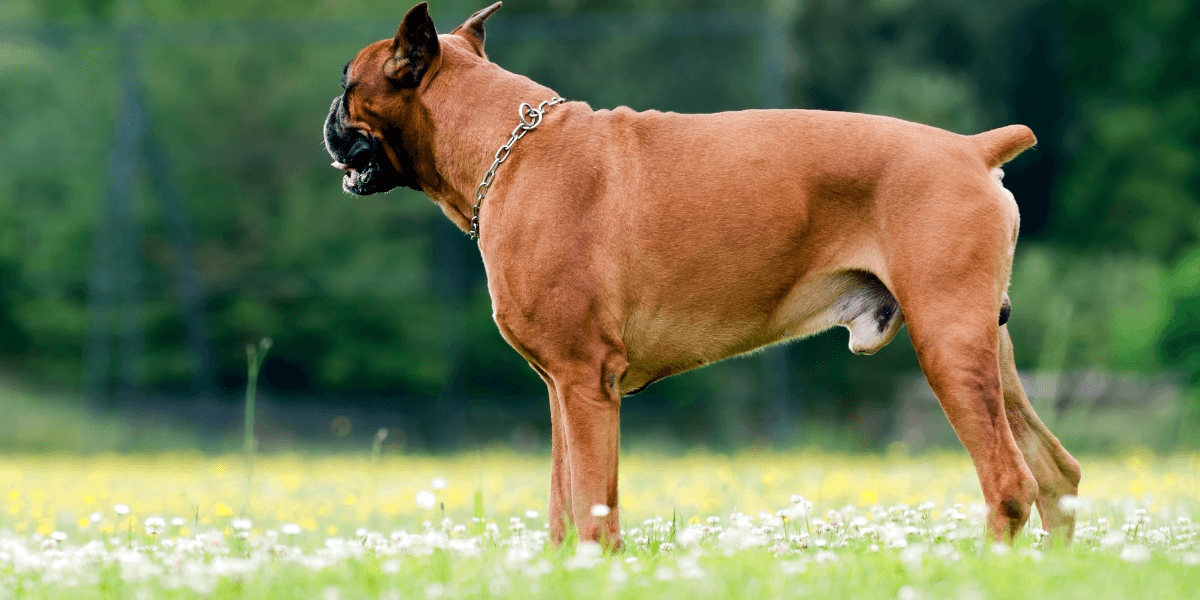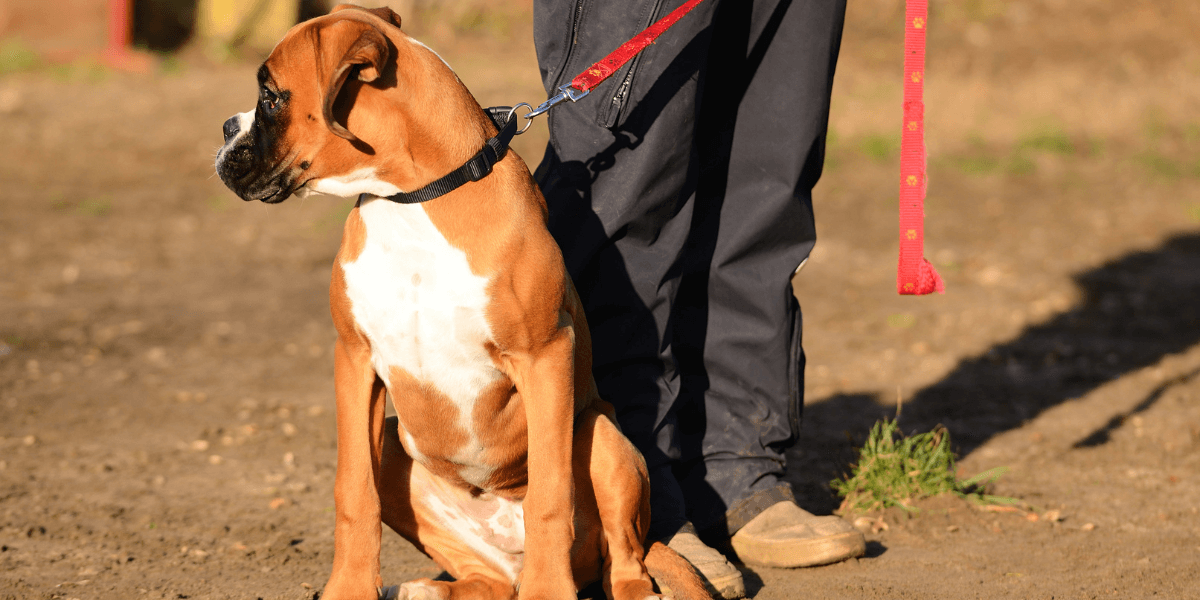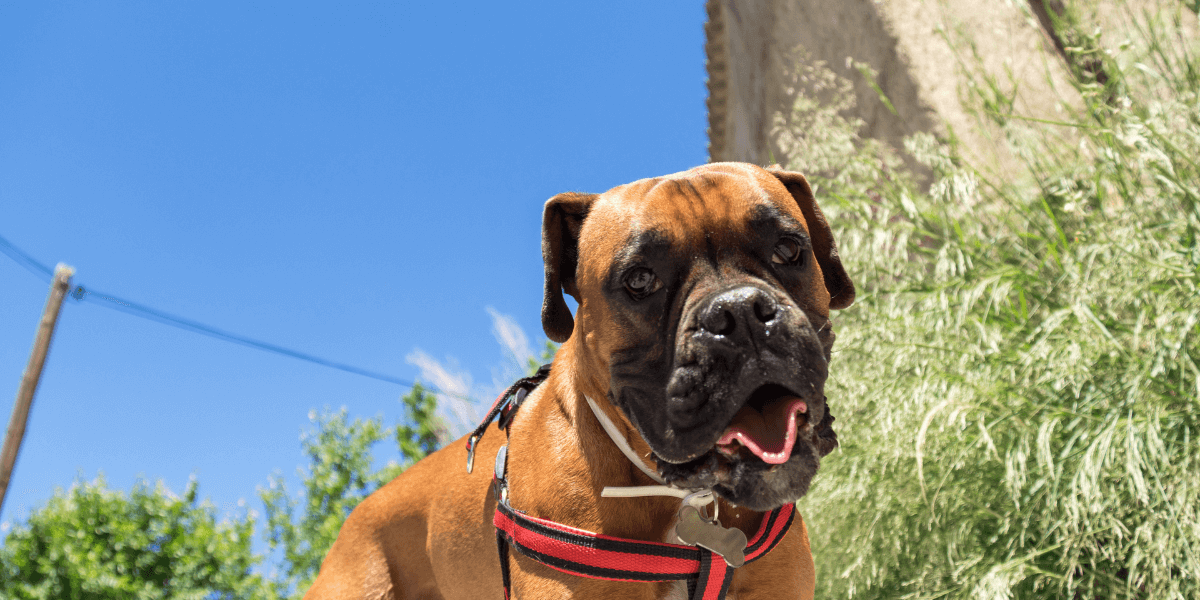Introduction
Boxer Temperament is key to understanding these energetic, affectionate dogs
- Learn how Boxers balance playfulness with their loyal, protective nature
- Discover what makes Boxers unique in their interactions with family and strangers
- Explore the typical behavioral traits and needs of Boxer dogs
- Understand the impact of training and socialization on a Boxer’s temperament
- Find out how a Boxer’s temperament influences their suitability for different households
- Get tips on managing and enhancing the Boxer’s energetic personality
1. The Playful and Energetic Nature of Boxers
Boxers are renowned for their boundless energy and playful demeanor
Here’s what you can expect:
- High Energy Levels: Expect to engage in daily walks and play sessions to keep them happy and healthy
- Playful Behavior: Ensure they have plenty of toys and space to burn off their energy
- Social Interaction: They enjoy playing with children and other pets, making them ideal for a busy household
- Training Benefits: Regular exercise helps with training and reduces behavioral issues
- Outdoor Activities: Boxers thrive on outdoor play like fetch and agility exercises
- Mental Stimulation: Interactive toys and puzzle games keep their minds engaged and active
2. The Protective Instincts of Boxers
Boxers are known for their strong protective instincts, making them excellent watchdogs
However, this trait also requires proper management:
- Guarding Behavior: They may bark or be cautious around strangers, which can be a plus for security
- Proper Socialization: Early and consistent socialization is key to ensuring your Boxer is friendly
- Training Tips: Avoid harsh training methods that might exacerbate their protective tendencies
- Family Loyalty: Boxers are devoted to their family and will protect loved ones with vigor
- Alertness: Their keen senses make them excellent watchdogs, always on the lookout
3. The Affectionate and Loyal Side of Boxers
One of the most endearing qualities of Boxers is their loyalty:
- Strong Bond: Boxers form deep bonds with their owners and often seek physical closeness
- Affectionate Behavior: Boxers are known to be particularly loving toward children, making them great family pets
- Loyal Companionship: Their loyalty means they’ll be by your side through thick and thin
- Cuddly Nature: They love to snuggle and be close to their owners, often seeking attention
4. Handling Boxer Temperament with Proper Training
Essential for managing a Boxer’s temperament and ensuring they become well-behaved adults:
- Consistency is Key: Consistent training routines help establish boundaries and good behavior
- Positive Reinforcement: Reward-based training methods are effective for reinforcing desirable behaviors
- Addressing Behavior Issues: Common issues include jumping, excessive barking, or chewing
- Early Socialization: Expose Boxers to different people to build adaptability
- Mental Stimulation: Use puzzle toys to keep their minds active and prevent boredom
- Clear Commands: Use simple commands and signals to reinforce desired behaviors
Learn how to balance Boxer temperament with training and check out these exercise essentials for Dobermans!
5. Boxers and Children: A Perfect Match
Boxers generally get along well with children.
But there are important considerations to ensure a positive relationship:
- Energetic Playmates: Their playful nature makes them ideal companions for kids who enjoy active play
- Supervised Interaction: Always supervise interactions between your Boxer and young children
- Teaching Kids: This fosters a positive and safe environment for both the Boxer and the children
- Gentle Temperament: Boxers are generally gentle with children and have a nurturing side
- Learning Together: Boxers can benefit from learning new tricks and commands alongside kids
- Respectful Boundaries: Teach both children and Boxers to respect each other’s space and needs
Discover why Boxers and children make a perfect match in this insightful article.
6. The Social Nature of Boxers
Boxers are social dogs who thrive on interaction with both humans and other animals:
- Need for Socialization: Regular socialization helps prevent behavioral issues
- Dog-Friendly: Especially if they are introduced properly and socialized from a young age
- Family Integration: Boxers prefer being included in family activities and may become distressed if left alone
- Visitor-Friendly: Boxers enjoy meeting new people and often greet guests warmly
- Active Participation: They thrive on participating in family activities and playtime
7. Health and Care Considerations for Boxers
Maintaining a Boxer’s health is crucial for their overall well-being and longevity:
- Regular Exercise: Boxers require daily exercise to stay healthy and prevent obesity
- Grooming Needs: Regular brushing helps reduce shedding and keeps their coat healthy
- Health Monitoring: Regular veterinary check-ups and a balanced diet can help manage these risks
- Hydration: Ensure your Boxer has constant access to fresh water, especially after exercise
- Joint Health: Monitor for signs of joint issues; supplements can support joint health
- Dental Care: Regular brushing and dental check-ups are essential to prevent oral health problems
Care for your Boxer’s health and explore Labrador Retriever health tips for every owner!
FAQs
1. What is a Boxer's general temperament?
- Boxers are energetic, friendly, and playful dogs
2. Are Boxers good with children?
- Yes, Boxers are known for being great family dogs and are good with kids
3. How do Boxers behave with other pets?
- Boxers can be social with other pets if properly socialized from a young age
4. What is a common trait of Boxer temperament?
- Boxer temperament often includes loyalty, high energy, and a love for play
5. Do Boxers require a lot of exercise?
- Yes, they need regular exercise to stay healthy and happy due to their high energy
6. Are Boxers easy to train?
- Boxers are intelligent but may need consistent training due to their playful nature
7. How does Boxer temperament affect their behavior at home?
- Boxer temperament makes them lively and affectionate, often seeking attention and play
Conclusion
- Embrace the unique Boxer Temperament for a rewarding and active companionship
- Proper training shapes Boxer temperament, like these Labrador Retriever training tips
- Appreciate the Boxer’s playful and loyal nature as part of their charm
- Adapt your lifestyle to match the high energy and affectionate nature of Boxers
- Regular socialization will help balance the Boxer’s protective instincts
- Understanding Boxer Temperament ensures a harmonious relationship with your dog
- A well-cared-for Boxer will be a joyful and loving member of your family
Your feedback helps us provide more valuable content for pet owners like you!
References
Further Reading:
- Boxer Dog Breed Guide
- Boxer Dog Breed Temperament & Personality
- Top Orthopedic Beds for Large Dogs with Hip Dysplasia
- Boxer Temperament
- Orthopedic Dog Beds for Large Dogs: A Comprehensive Guide
Thank you!



